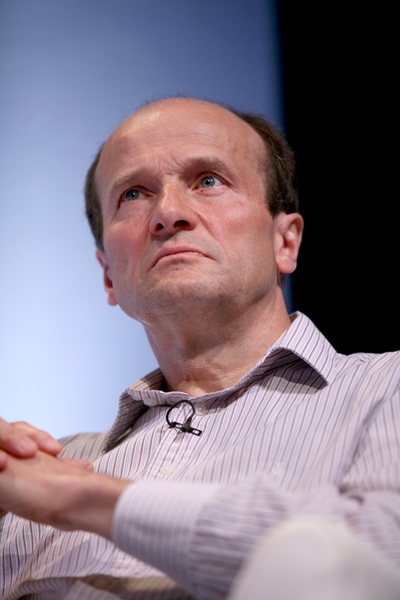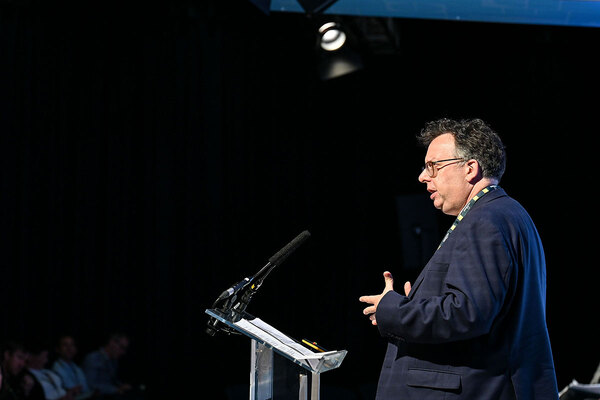Are you in the giving vein?
Transparency is about changing the way you work, not just publishing a few spending figures, says Mick Kent
It’s Saturday night at the Globe Theatre down by the Thames and Mark Rylance is playing a blinder as Richard III. The Duke of Buckingham has shed blood in his King’s name and turns to Richard to call in the promised favours. But Richard is having none of it: ‘I am not in the giving vein today…’ In fact Richard is never in the giving vein… he knows that privileges and titles, like knowledge and information, is power. To give these away is a sign of weakness.
Fast forward to today and the reverse is true. Smart leaders get it that the more they give away and the more they empower colleagues, the more respected and more influential they become. There’s also another battle being fought today, and it’s around information, transparency and culture rather than military might and kingdoms. In today’s information age, where social media is turning upside down the old ways of communicating and controlling information (top down and heavily censored), people, and especially Generation Y-ers, now expect access to knowledge and information in a way unthinkable even 10 years ago.
And the recent skirmishes around bankers’ pay, LIBOR, News International, LOCOG and G4S (never mind MP’s expenses) have further dented public trust in our institutions and the traditional way of doing things. All this, in my view throws up an opportunity – for those brave enough to take it – to open up and make more accountable the way decisions are made, how resources are used, leaders remunerated and power exercised. And it is here that smart leaders can make their mark. Because we are just at the start of what some believe to be a working revolution; this time built around knowledge and information. Just as farmers 200 years ago left the land and learnt new skills to become factory workers in the industrial revolution, and then 50 years ago in turn had to adapt and learn new skills to become office workers, so information technology, mobile working and social media is bringing in the next phase of the evolution of the thing called ‘work’.
Beth Kanter explains this perfectly in her Blog and talks about ‘networked organisations and networked leadership - open and transparent, that consider every person and organisation in their network an asset for reaching their mission… where leaders exercise leadership through active participation, sharing by default, communicating through a network model, rather than a broadcast model — finding where the conversations are happening and taking part’.
And with this phenomenal change in technology and access to information, there are huge opportunities to open up our organisations, get better input from others in decision-making: co-workers (we call them colleagues at Bromford), suppliers and partners, and customers alike. If we are in the opening up and giving vein that is.
For a long time now we have, at Bromford, worked hard to ensure decisions are made as far as possible by colleagues working closest to the customer. This started to stall about eight years ago due in part to the governance complexities of a new expanded group structure, and at the same time the increasing focus by the Audit Commission on prescribed ways of doing things and KLOE’s. Both of those are now thankfully behind us and we are emerging as a leaner, more efficient, simple and more open organisation, embracing technology and social media to the hilt.
As a result we can now have better conversations, share information much better, wider and faster. Eight hundred of our 1200 colleagues now use Yammer, our own business network, and are much better informed as a result. We have open wi-fi in all offices; all colleagues can use social media whenever they like (yes, Twitter and Facebook at work!), increasing numbers are bloggers, and we have one very simple guideline: ‘If you wouldn’t shout it out loud in the work cafe, don’t post it!’ (Control and sensible oversight of social media is not an IT issue, it’s a managerial one). We are trying to create a more open, accountable and switched on bunch of people, and it’s why we adopted 100 per cent open plan offices 7 years ago and why no one has a private office anymore (I gave up mine twelve years ago in favour of hot-desking) and it’s why all Bromford leaders are expected, as a non-negotiable, to be visible, in touch, approachable and aware.
You can see some of this through our website, our Facebook pages and the increasing number of our amazing Bromford colleagues using Twitter (a recent survey found that almost half of the most-followed people working in social housing are at Bromford).
So, what about the stuff that we now publish on-line? How transparent do we want to be? Well, we have made a start and you will see from here that as part of what we now make available publicly, we have decided to publish stuff like directors’ salaries and expenses, how we use our money, where it comes from and where it goes. Our policies that guide decisions and how we are doing on the ground. And yes, as part of this break with the old way of doing things, we’re publishing any expenditure over £500 because we want this information out there, to help inform everyone – colleagues, customers, stakeholders and people who might be thinking about working for us – to know about us, our values, how we do business and whether we are in the giving vein.
There has been quite a bit of fuss about whether the Housing Minister, @grantshapps is right to demand that we publish all the £500 stuff. Well, even if you don’t really buy my ideas above, maybe you will this: Isn’t it just a bit like social media? ‘If we don’t participate it will be done to us.’
We actually made these decisions weeks ago, but just didn’t see it as a big deal, so have not shouted or press released about it so far. After all, what’s the fuss about? It’s not as if we are losing our independence, nor conceding power (although I imagine Richard III would not see it quite like that). If anything it’s the reverse – it’s about giving away power and knowledge but in turn building influence and a better, more open ‘networked’ culture. But then, unlike the doomed King Richard, the best leaders already know that the more power you give away, the stronger you become…
So, are you in the giving vein today?
Mick Kent is chief executive of Bromford Group. You can follow him on Twitter @mickkent2








